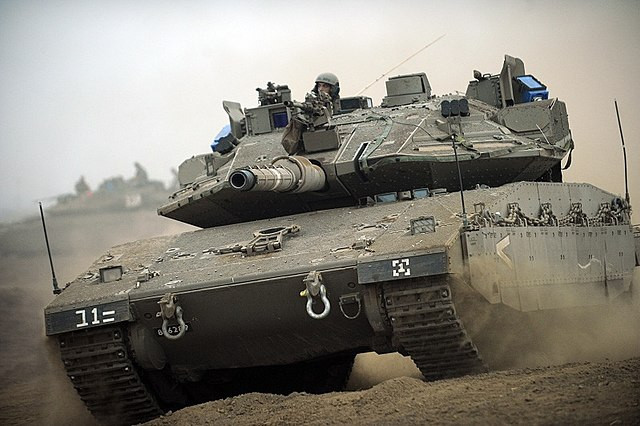Israel is poised to launch a massive ground operation in Rafah, a city in southern Gaza that has become a stronghold for the Islamic militant group Hamas. The Israeli Defense Forces (IDF) have begun ordering tens of thousands of Palestinians living in the city to evacuate, signaling that the long-anticipated military action could be imminent. The move comes as last-ditch efforts by international mediators, including the CIA, to broker a cease-fire have failed to produce a deal.
On Monday, the IDF ordered an evacuation of Rafah, describing the city as the last significant Hamas stronghold after seven months of war. Israeli Defense Minister Yoav Gallant told U.S. Secretary of Defense Lloyd Austin that Israel was left with no choice but to act in Rafah after Hamas terrorists carried out a deadly rocket attack from the city earlier in the day, leaving four Israeli soldiers dead.
According to Lt. Col. Nadav Shoshani, an army spokesman, some 100,000 people are being ordered to move to a nearby Israel-declared humanitarian zone called Muwasi. The evacuation orders have been issued through air-dropped leaflets, text messages, and radio broadcasts to ensure that Palestinians receive the information. "Anyone found near (militant) organizations endangers themselves and their family members. For your safety, the (army) urges you to evacuate immediately to the expanded humanitarian area," one flyer read.
The United Nations' children's charity, UNICEF, has warned that children in Rafah are "especially vulnerable" and that more than 600,000 could face "further catastrophe" if large-scale military operations begin. "Rafah is now a city of children, who have nowhere safe to go in Gaza," said UNICEF Executive Director Catherine Russell in a press release. Children make up about half of Rafah's current population of 1.2 million, many of whom have been displaced multiple times and are sheltering in tents or informal and unstable housing.
Hamas has condemned the IDF's evacuation orders, calling them a "dangerous escalation" that could scuttle the already strained hostage talks. Sami Abu Zuhri, a Hamas official, told Reuters, "The US administration, alongside the occupation, bears responsibility for this terrorism," referring to Israel's alliance with Washington. He warned that the evacuations could have consequences and that hostage talks could be suspended.
The Kerem Shalom attack on Sunday, which killed four Israeli soldiers, has already caused ceasefire talks to falter. An Egyptian source told Al-Qahera News that the attack was the reason the talks had stalled. The Hamas delegation returned to Doha from Cairo for consultations with its leadership, while CIA Director William Burns left Cairo for Doha and is expected in Israel this week.
At the heart of the disagreement is Hamas's insistence on a permanent ceasefire, while Israel stands firm that it can only accept a pause in the war because it is determined to conduct a military operation in Rafah to destroy the remaining Hamas battalions there. The international community, including the United States, has opposed a Rafah operation, fearing it would lead to a humanitarian disaster for the over 1.3 million Palestinians located there, many of whom sought shelter in the city to escape Israeli bombardments in northern Gaza at the start of the war.
Belgian Vice Premier Petra De Sutter, a fierce critic of Israel's war against Hamas, warned that a Rafah "invasion will lead to a massacre" and said that Belgium is working on further sanctions against Israel. The United Nations Relief and Works Agency (UNRWA), the main organization that services Palestinian refugees, stressed on X that "an Israeli offensive in #Rafah would mean more civilian suffering [and] deaths. The consequences would be devastating for 1.4 million people."
Defense Minister Yoav Gallant spoke with U.S. Secretary of Defense Lloyd Austin overnight, updating him on the Kerem Shalom attack and Israel's pending Rafah operation. Gallant indicated that "at this stage, Hamas refuses the frameworks at hand" and "emphasized that military action is required, including in the area of Rafah, at the lack of an alternative." He added that Israel is committed to achieving the goals of the war, which include the destruction of Hamas as a military and governing authority and the return of 132 hostages.




